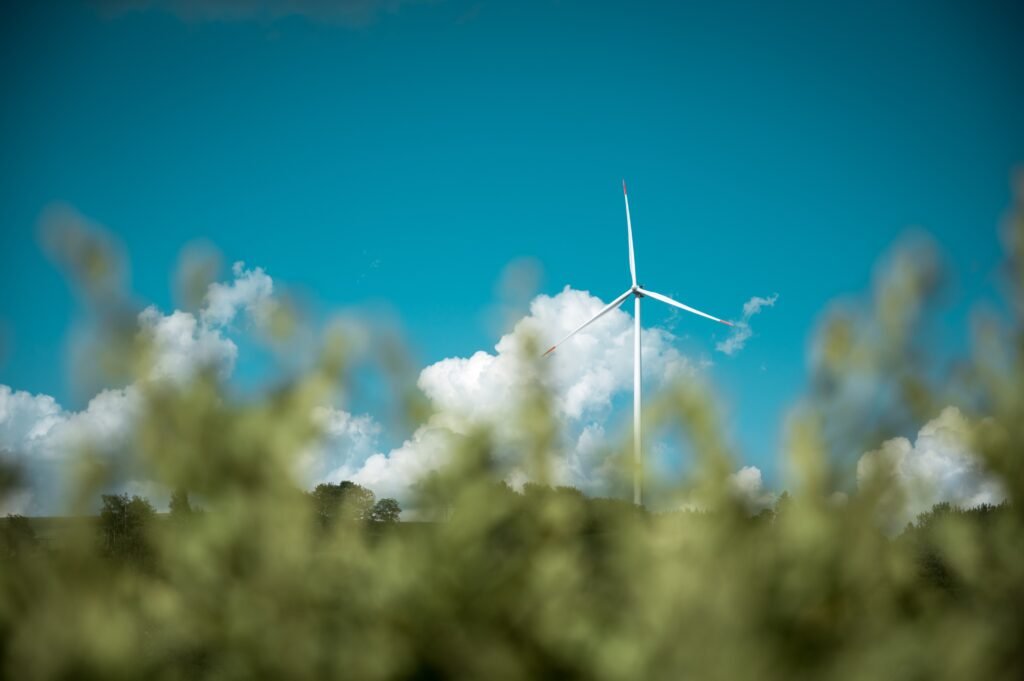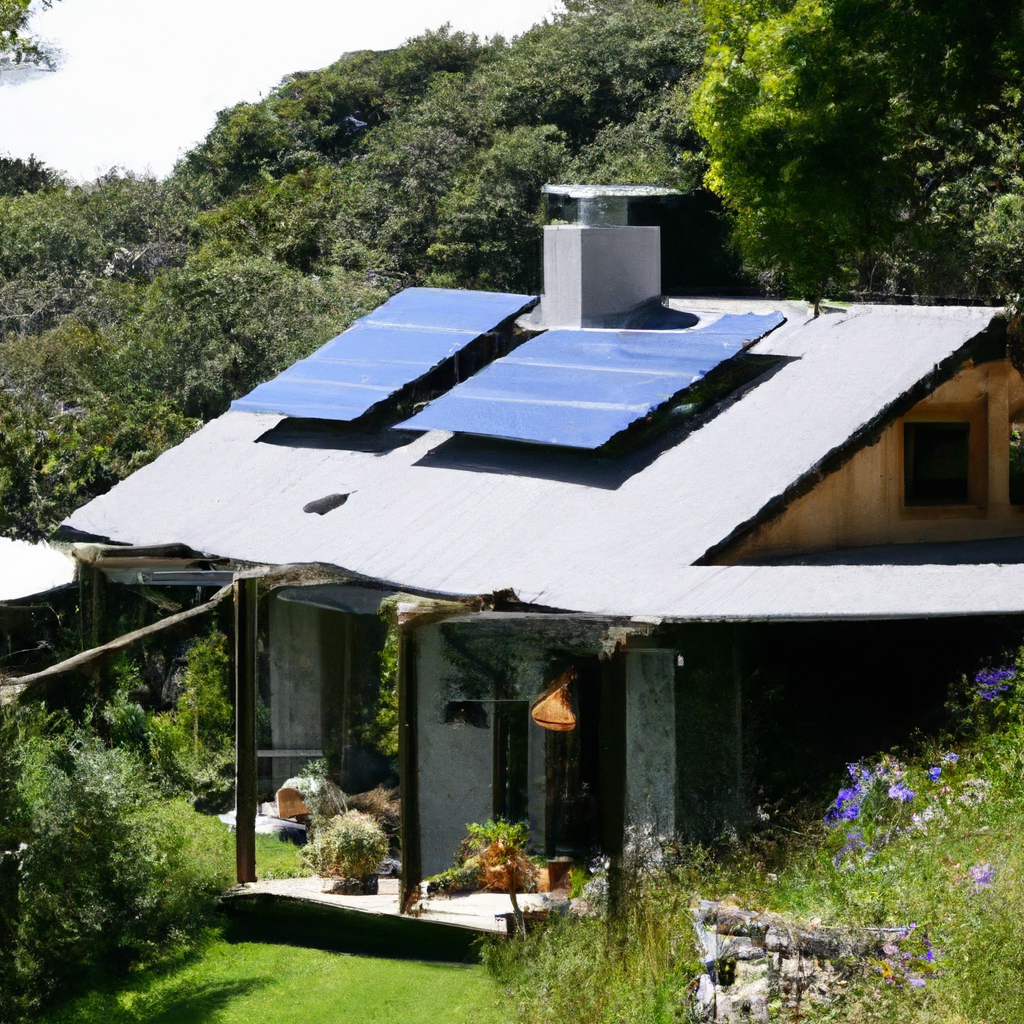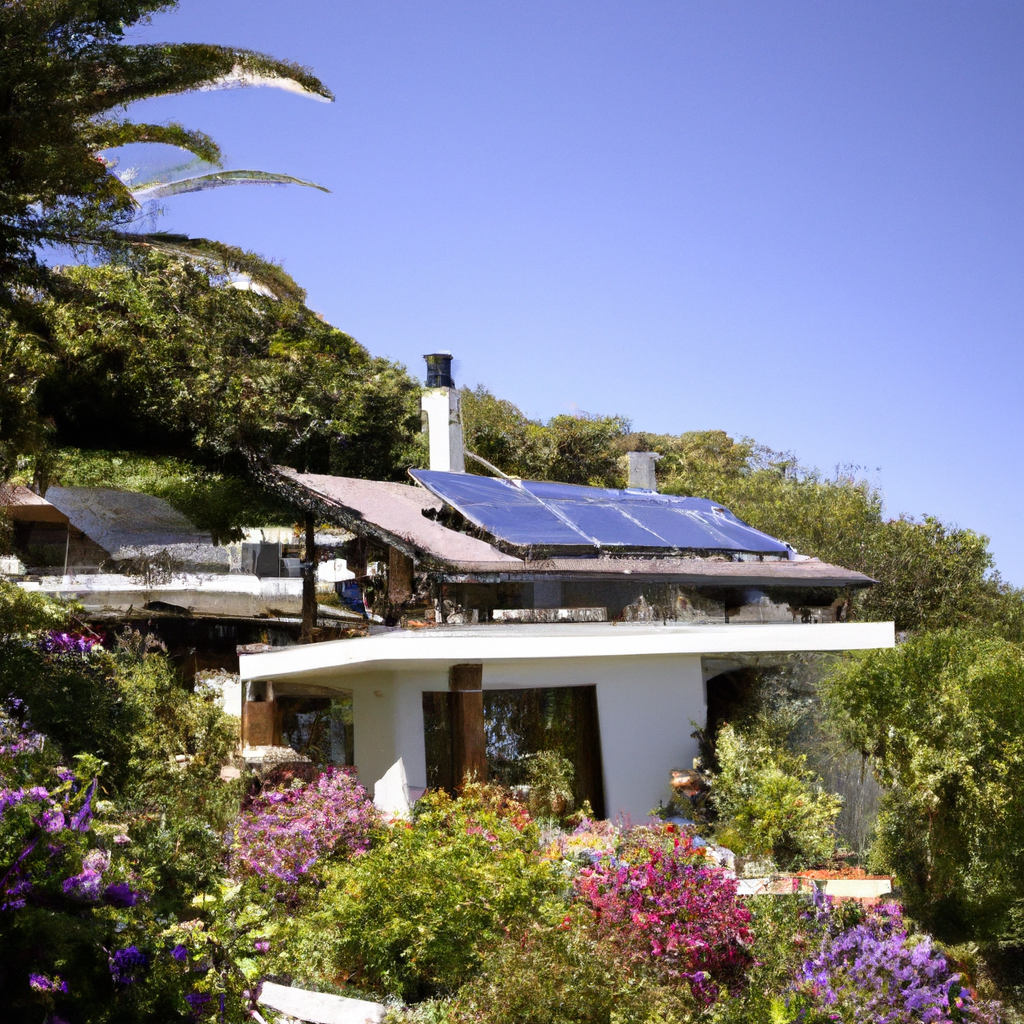Step into the world of sustainable living and discover the beauty of eco-friendly homes in South Africa. From solar panels that harness the power of the African sun to innovative water-saving systems, these homes are revolutionizing the way we live. Join us on a journey through the picturesque landscapes and learn how individuals and communities are embracing environmentally conscious living. Get ready to be inspired and explore the endless possibilities of green living in South Africa.

Understanding the Concept of Eco-Friendly Homes
Definition of eco-friendly homes
Eco-friendly homes, also known as green homes or sustainable homes, are residences designed and constructed with the goal of minimizing their negative impact on the environment. These homes are built using materials and technologies that are energy efficient, promote the use of renewable energy sources, conserve water, and manage waste effectively. The concept of eco-friendly homes goes beyond just the physical structure and also encompasses sustainable lifestyle practices adopted by the occupants, such as reducing energy consumption and waste generation.
The need for eco-friendly homes
With growing concern about climate change and the depletion of natural resources, the need for eco-friendly homes has become increasingly evident. Traditional homes heavily rely on non-renewable energy sources, consume excessive amounts of water, and often produce substantial amounts of waste. Furthermore, the current housing situation in South Africa, characterized by a lack of adequate housing and constrained resources, calls for sustainable and responsible housing solutions. Eco-friendly homes offer a way to address these challenges by providing energy-efficient and environmentally-friendly alternatives that can improve the quality of life for residents while reducing their carbon footprint.
An Overview of the Current Housing Situation in South Africa
Overview of housing problems in South Africa
South Africa faces numerous housing challenges, including a significant housing backlog, informal settlements, and a lack of access to basic services such as electricity, water, and sanitation. According to the Department of Human Settlements, millions of households in South Africa live in inadequate and overcrowded conditions, particularly in urban areas. The demand for affordable and sustainable housing solutions is urgent, and the adoption of eco-friendly homes can play a crucial role in providing decent and environmentally responsible housing options.
Why adopting eco-friendly homes is critical in South Africa
The adoption of eco-friendly homes in South Africa is critical for several reasons. Firstly, it can help address the housing crisis by providing energy-efficient and affordable housing options that are suitable for the diverse needs of the population. Secondly, eco-friendly homes can contribute to the country’s efforts to combat climate change and reduce its carbon emissions. South Africa, as a signatory to the Paris Agreement, is committed to reducing its greenhouse gas emissions, and green homes can significantly contribute to achieving this goal. Lastly, the adoption of eco-friendly homes can stimulate economic growth and job creation through the development and implementation of green technologies and practices.

Features of Eco-Friendly Homes
Use of Renewable Energy Sources
One of the prominent features of eco-friendly homes is the use of renewable energy sources to power the building. Solar panels, wind turbines, and geothermal systems are commonly used in green homes to generate electricity and heat water. By harnessing the power of nature, eco-friendly homes reduce dependence on fossil fuels, lower energy consumption, and contribute to a cleaner and more sustainable energy future.
Energy Efficiency in Design and Construction
Energy efficiency plays a vital role in eco-friendly homes. These homes are designed and constructed with energy-saving principles in mind, using insulation, energy-efficient windows, and efficient HVAC systems. Additionally, eco-friendly homes often incorporate passive design strategies to maximize natural lighting, ventilation, and temperature regulation. Through these measures, green homes consume less energy for heating, cooling, and lighting, resulting in reduced energy bills and a smaller ecological footprint.
Water Conservation Measures
Water scarcity is a pressing concern in South Africa, making water conservation a crucial aspect of eco-friendly homes. Green homes incorporate various water-saving technologies and practices, such as rainwater harvesting systems, greywater recycling, low-flow fixtures, and water-efficient landscaping. By reducing water consumption, eco-friendly homes contribute to the preservation of the country’s water resources and help alleviate the strain on the existing water infrastructure.
Waste Management Systems
Eco-friendly homes also prioritize effective waste management systems. Recycling facilities, composting systems, and proper waste segregation practices are commonly integrated into green homes. These measures reduce the amount of waste sent to landfills, promote recycling, and encourage a sustainable approach to waste disposal. By properly managing waste, eco-friendly homes minimize environmental pollution and promote a circular economy.
The Role of Technology and Innovation in Building Eco-Friendly Homes in South Africa
Evolution of green technology in homebuilding
The field of green technology has seen remarkable advancements in recent years, offering new possibilities for eco-friendly home construction in South Africa. Innovative technologies such as smart home automation systems, energy-efficient appliances, and advanced building materials have significantly contributed to the development of green homes. These technologies enhance energy efficiency, streamline waste management processes, and facilitate eco-conscious living. As technology continues to evolve, new opportunities will emerge to further improve the sustainability and functionality of eco-friendly homes.
Innovative green home designs in South Africa
South Africa is experiencing a surge in innovative green home designs that cater to the unique needs and challenges of the country. Architects and designers are embracing sustainability as a core principle in their creations, incorporating features such as passive solar design, green roofs, and natural ventilation systems. These designs blend seamlessly with the local environment, utilize locally sourced materials, and integrate renewable energy sources. By combining aesthetics with sustainability, these innovative green home designs showcase the potential for a harmonious and eco-conscious built environment in South Africa.

Challenges of Adopting Eco-Friendly Homes in South Africa
Infrastructure and Development Challenges
One of the primary challenges of adopting eco-friendly homes in South Africa is the lack of adequate infrastructure and development. Many informal settlements and underserved areas lack basic services such as electricity, water supply, and sanitation. Without access to these essential services, the implementation of eco-friendly technologies becomes challenging. Infrastructure development, particularly in marginalized communities, is necessary to create an enabling environment for the adoption of green homes.
Financial and Economic Constraints
Cost is a significant consideration in the adoption of eco-friendly homes. While the long-term benefits of green homes, such as reduced energy bills, are evident, the upfront costs can be a barrier to implementation. Investing in energy-efficient technologies, renewable energy systems, and sustainable construction materials often requires higher initial capital. Financial incentives, subsidies, and accessible financing options can help overcome this challenge and make eco-friendly homes more affordable for a wider range of households.
Societal Perception towards green living
Despite the growing awareness of environmental issues, societal perception towards green living and eco-friendly homes can still be a challenge in South Africa. Some individuals may view sustainable living as inconvenient or expensive, while others may lack awareness of the benefits and potential savings associated with eco-friendly homes. Public awareness campaigns, educational initiatives, and showcasing successful case studies can help shift societal perception and encourage more widespread adoption of green homes.
Case Studies of Successful Eco-House Projects in South Africa
Award-winning Eco-friendly homes in South Africa
Several award-winning eco-friendly homes in South Africa have gained recognition for their innovative designs and sustainability features. One such example is the “Ceres House,” a net-zero energy home that generates its energy through solar panels, rainwater harvesting, and passive design principles. Another notable project is the “House Macleans,” which integrates sustainable materials, energy-efficient systems, and green roofs to blend harmoniously with the surrounding landscape. These award-winning homes serve as inspiration and showcase the potential of eco-friendly housing in South Africa.
Community-led eco-home projects in South Africa
Community-led eco-home projects have emerged as powerful solutions to address housing issues while promoting sustainable living in South Africa. These projects involve local communities in the design and construction of eco-friendly homes, creating a sense of ownership and fostering sustainable practices. The iShack project, for instance, has successfully implemented affordable and energy-efficient homes in informal settlements, improving living conditions and empowering communities. These community-led initiatives demonstrate the potential for collaboration and collective action in achieving sustainable housing solutions.

The Economic Benefits of Green Homes
Energy saving and its economic benefits
One of the significant economic benefits of green homes is the potential for energy savings. By incorporating energy-efficient technologies and renewable energy sources, green homes significantly reduce the reliance on expensive and polluting fossil fuels. This leads to lower energy bills for homeowners, allowing them to allocate their finances to other important needs. Additionally, energy savings contribute to a more stable and resilient energy grid, reducing the risk of energy shortages and associated economic costs.
Job creation potentials of green homes
The adoption of eco-friendly homes in South Africa has the potential to stimulate job creation in various sectors. The construction industry, in particular, can benefit from the increased demand for green building materials, energy-efficient technologies, and sustainable construction practices. Moreover, the maintenance and operation of green homes often require specialized skills, creating employment opportunities for technicians, energy auditors, and sustainability consultants. The growth of green homes can contribute to the creation of a sustainable and green economy, fostering job opportunities and economic development.
Role of Government Policy in Encouraging Green Homes
Current environmental policies in South Africa
South Africa has made significant strides in environmental policy development to encourage sustainability and the adoption of green homes. Policies such as the National Environmental Management Act, the National Water Act, and the National Building Regulations promote environmentally responsible practices in the construction industry. The Green Building Council South Africa also provides voluntary green building certifications to incentivize the development of sustainable homes. However, continuous improvement of policies, along with effective implementation and enforcement, is necessary to further encourage the construction and operation of green homes.
How government policies can promote green home constructions
Government policies can play a crucial role in promoting green home constructions in South Africa. Financial incentives, tax breaks, and subsidies can make eco-friendly homes more affordable and attractive to potential homeowners. The development of building codes and standards that prioritize energy efficiency, water conservation, and waste management can further encourage the adoption of green building practices. Education and awareness campaigns can also be supported by the government to inform the public about the benefits and importance of eco-friendly homes. By integrating environmental considerations into policy frameworks, the government can create an enabling environment that facilitates the widespread adoption of green homes.

Future Prospects of Green Homes in South Africa
Increased need for eco-friendly homes
The need for eco-friendly homes in South Africa is expected to increase in the future due to several factors. Population growth, urbanization, and the demand for affordable housing will put additional pressure on the already strained housing resources. Climate change and the associated risks, such as water scarcity and extreme weather events, will also necessitate the development of resilient and sustainable housing solutions. The South African government’s commitment to reducing carbon emissions and promoting sustainable development further emphasizes the importance of green homes in the country’s future.
Potential growth and development of green homes in South Africa
The potential for growth and development of green homes in South Africa is promising. Advancements in technology, building practices, and materials continue to make eco-friendly homes more accessible and affordable. Increased public awareness, changing societal attitudes, and the desire for healthier and sustainable lifestyles create opportunities for the market to embrace eco-friendly homes. Collaboration between the public and private sectors, along with continued government support, can further drive the growth of green homes and contribute to a sustainable housing future in South Africa.
Conclusion: The Road to a Sustainable Housing Future in South Africa
As South Africa faces significant housing challenges and strives to combat the impacts of climate change, eco-friendly homes offer a path towards a sustainable and resilient housing future. By adopting eco-friendly features and integrating sustainable practices, these homes can provide energy-efficient, water-sustainable, and environmentally responsible housing solutions. The benefits of green homes extend beyond individual households, contributing to reduced carbon emissions, job creation, and economic growth. With continued government support, public awareness, and collaboration between stakeholders, South Africa can pave the way for a sustainable housing future that improves the quality of life for its residents while preserving the environment. Embracing green culture and lifestyles will be essential in this journey towards a truly sustainable South Africa.
